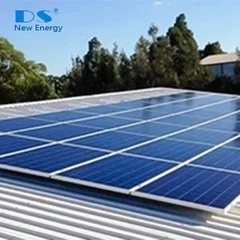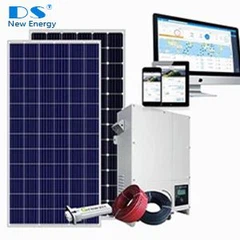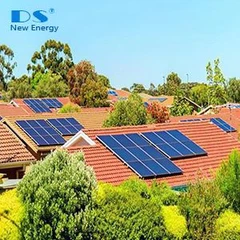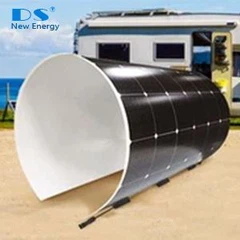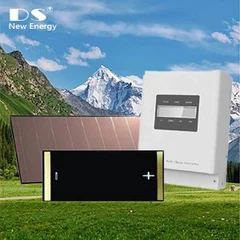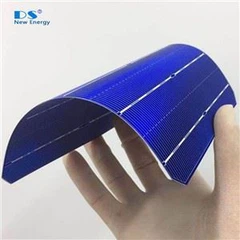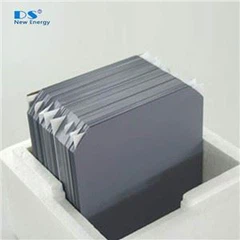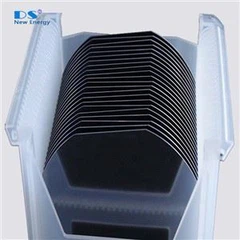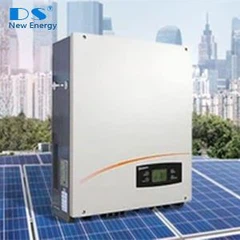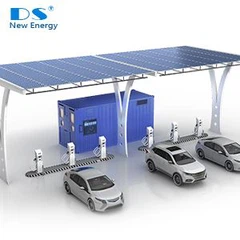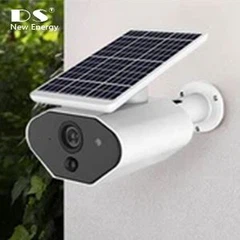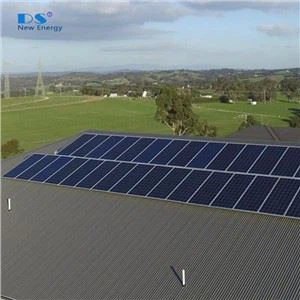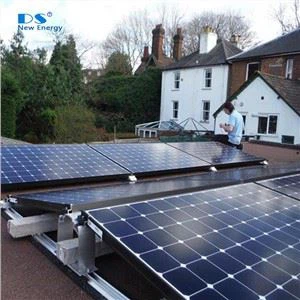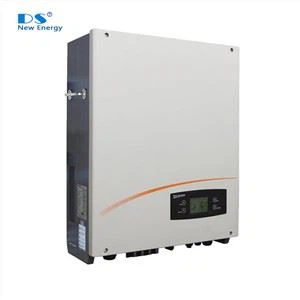In order to ensure that photovoltaic products can smoothly enter the markets of various countries, it is essential to meet the certifications of local regulations and standards. This article will introduce the certifications and related requirements necessary for exporting photovoltaic products to the major markets around the world, helping companies better understand and address the certification challenges in international trade.

I . Certification Requirements for Major European Markets
Europe has the most mature PV certification system globally, with CE Certification as the basic access requirement. Some countries have additional compliance requirements.
1. Basic Access: CE Certification
Scope of Application: All EU member states (27 countries) and the European Economic Area (EEA, e.g., Norway, Iceland).
Core Standards (all equivalent to IEC international standards):
EN 61215: Safety and performance of crystalline silicon PV modules for ground use (for crystalline silicon modules);
EN 61646: Safety and performance of thin-film PV modules for ground use (for thin-film modules);
EN 61730-1/-2: Safety requirements for PV modules (Part 1: Structural requirements, Part 2: Test requirements);
EN 50549: Grid-compatibility of PV systems (separate testing required in some countries).
Certification Process: Testing and factory inspection must be conducted by an EU Notified Body (e.g., TÜV Rheinland, TÜV SÜD, SGS). Upon passing, a CE certificate is issued, which requires regular supervision and maintenance.

2. Additional Requirements in Key Countries
Germany: No additional mandatory certification is required, but grid connection must comply with VDE-AR-N 4105 (low-voltage grid connection) or VDE-AR-N 4110 (high-voltage grid connection). Some projects require the TÜV mark (voluntary, to enhance market trust).

United Kingdom: After Brexit, the independent UKCA Certification (UK Conformity Assessed) was implemented, with standards consistent with CE (EN 61215/61646/61730). Testing must be conducted by UK-accredited institutions (e.g., UKAS-qualified laboratories). UKCA will fully replace CE for use in the UK starting from 2025.

France: No additional certification is required, but product information must be registered with ADEME (French Environment and Energy Management Agency). Some tender projects require a "carbon footprint report" (compliant with ISO 14067).
Italy:UNI 9177:2008: This standard classifies combustible products. It uses the test methods in UNI 8457 and UNI 9174. The rating ranges from 1 to 5, with 1 being the best.
UNI 8457:2010: Combustion reactions caused by a small flame igniting the surface of a material.
UNI 9174:2010: Combustion reactions caused by heat radiation from a material.
II. Certification Requirements for Major Asian Markets
Asia is the world's largest market for PV installation, with significant variations in certification systems across countries. Some markets have mandatory access requirements.
1. Japan
Mandatory Certifications:
Compliance with JIS C 8915 Standard (for ground-mounted PV modules) plus PSE Certification (Product Safety Electrical Appliance & Material) is mandatory. PV modules fall under the category of "Specified Electrical Appliances and Materials" and must undergo testing by institutions accredited by Japan's Ministry of Economy, Trade and Industry (METI) (e.g., JET, JQA). The certificate is valid for 5 years.
Grid-connection requirement: Additional compliance with JIS C 8930 (Grid-Connected Protection Devices for PV Systems) is needed, and some power companies require a "grid-compatibility test report".
2. South Korea
Mandatory Certification: KC Certification (Korea Certification) is required, based on the standard KS C IEC 61215 (equivalent to the IEC standard). Testing must be conducted by institutions accredited by South Korea's Ministry of Knowledge Economy (MKE) (e.g., KTL, KR). The certification includes factory audits, with a validity period of 3 years.
Supplementary requirement: PV modules must be labeled with the "KC" mark and registered in South Korea's "Electrical Safety Management System" (KEMC).

3. India
Mandatory Certifications: BIS Certification (Bureau of Indian Standards) has been mandatory for PV modules since 2020, requiring compliance with the standard IS 14286 (equivalent to IEC 61215).

4.Thailand
Mandatory Certifications: The Thai Industrial Standards Institute (TISI) is responsible for developing and enforcing national standards in Thailand. TISI is affiliated with the Ministry of Industry. For photovoltaic products, this certification is voluntary.

5.Singapore
Mandatory Certifications: In Singapore, the SCDF certifies the fire safety of photovoltaic panels. The Building Fire Protection Act 2018 requires fire-certified products to comply with relevant standards. Mandatory requirement: Fire testing (IEC 61730 Fire Class C).

6.Indonesia• Mandatory Certifications: The SNI mark is a mandatory certification for photovoltaic modules to enter the Indonesian market. The Indonesian SNI certification (Standar Nasional Indonesia) ensures product quality and safety. The Indonesian National Standards Bureau (BSN) is responsible for managing the national standard certification system.

7.Dubai
• Mandatory Certifications: Dubai DEWA certification is for photovoltaic modules and related equipment and is issued by the Dubai Electricity and Water Authority. DEWA has requirements for imported photovoltaic modules and inverters, and all approved products must be on the qualified equipment list.

III. Certification Requirements for Major North American Markets
The North American market centers on UL Certification (U.S.) and CSA Certification (Canada), with unified grid-connection standards.
1. United States
Core Certification: UL 1703 Certification (Standard for Flat-Plate Photovoltaic Modules and Panels) is voluntary in name, but all PV modules connected to the U.S. power grid must pass UL 1703 testing (mandated by grid companies in all states).
Testing content: Electrical safety (e.g., insulation, voltage withstand), mechanical strength (e.g., wind resistance, hail resistance), environmental adaptability (e.g., high-low temperature cycling, humidity-freezing);
Certification bodies: UL (Underwriters Laboratories), ETL (under Intertek, with equivalent qualification to UL);
Supplementary requirement: Compliance with the NEC 2020 (National Electrical Code) regarding PV system wiring and grounding is required. Some states (e.g., California) mandate that modules meet the CEC Efficiency List (California Energy Commission, to qualify for subsidies).

2. Canada
Core Certification: CSA C22.2 No. 61730-1/-2 (equivalent to IEC 61730) is mandatory. All modules must undergo testing by CSA (Canadian Standards Association) or its accredited institutions (e.g., UL Canada), and certificates must bear the "CSA" mark.
Mutual recognition with the U.S.: Some institutions (e.g., UL) offer dual UL + CSA certification (one test to meet both U.S. and Canadian requirements), reducing certification costs.

3. Mexico
Core Certification: FIDE certification (Fideicomiso para el Ahorro de Energía Eléctrica) is the energy efficiency certification for electrical equipment in Mexico. It is jointly administered by the Mexican Ministry of Energy (SENER) and the CFE. This certification aims to reduce electricity use and emissions. It will promote efficiency and sustainable development in Mexico.

IV. Certification Requirements for Major Oceanian Markets
Centered on Australia and New Zealand, the certification system is highly unified.
Australia & New Zealand
Mandatory Certification: Australia's Clean Energy Council (CEC) is responsible for certifying PV modules. This ensures they meet local safety and performance standards. Crystalline PV modules must demonstrate compliance with IEC 61215 and IEC 61730.

V. Certification Requirements for Other Key Markets
1. Brazil
Mandatory Certification: INMETRO Certification (National Institute of Metrology, Standardization and Industrial Quality of Brazil) is required, based on the standard NBR IEC 61215 (equivalent to IEC). The certification process includes:
Sample testing (conducted in INMETRO-accredited laboratories, e.g., CETEL);
Factory inspection (for initial certification and annual supervision);
The certificate is valid for 3 years, and the "INMETRO mark" must be affixed for sales.

2. Chile
Mandatory Certification: Electrical products in Chile are regulated by the Chilean Electricity and Combustibles Regulatory Authority (SEC). The SEC's primary responsibility is to ensure that electrical products sold in Chile are safe and energy-efficient. Photovoltaic panels and inverters are regulated by Chilean laws and regulations. SEC authorization is mandatory for imported products.

3. South Africa
Mandatory Certification: SABS Certification (South African Bureau of Standards) is required, based on the standard SANS 61215 (equivalent to IEC). Testing must be conducted by SABS-accredited laboratories. The certificate is valid for 1 year and requires regular review.
Supplementary requirement: Grid connection must comply with SANS 10142-1 (Low-Voltage Electrical Installation Code).

4. United Arab Emirates (Representative of the Middle East)
Mandatory Certification: SASO certification (Saudi Arabian Standards Organization) applies to imported products to ensure that the products meet Saudi Arabia's safety and quality standards. Products must first obtain a SIRC certificate issued by SASO before applying for PC and SC certificates.

5.Colombia
Mandatory Certification: Colombia's RETIE certification (Reglamento Técnico de Instalaciones Eléctricas) is a mandatory technical regulation established by the Colombian government for electrical equipment and installations, ensuring the safety, reliability, and compliance of electrical products. As a key entry standard into the Latin American market, RETIE certification not only secures product sales in Colombia but also represents a crucial barrier for companies entering the Latin American market.

VI. Key Notes for Certification
Standard Timeliness: IEC standards (e.g., IEC 61215) are updated regularly (the latest version currently is 2021). National certifications are updated synchronously, so it is essential to ensure products comply with the "latest valid version".
Factory Audits: Most mandatory certifications (e.g., INMETRO, BIS, KC) require "initial factory audits + annual supervision audits". A quality management system (e.g., ISO 9001) that meets certification requirements must be established.
Mutual Recognition and Exemptions: Some certifications allow mutual recognition (e.g., UL & CSA, CE & UKCA), reducing duplicate testing. Some small markets (e.g., Southeast Asia) have no mandatory certifications, but customers may require an "IEC test report" as a basis for market access.
Separate Grid-Connection Requirements: Beyond the module's own certification, some markets (e.g., Germany, Australia) require an additional "grid-compatibility test report". It is advisable to confirm requirements with local grid companies in advance.
Obtaining the above certifications ensures that PV modules meet the regulatory requirements of the target market, enabling smooth market entry and grid-connection eligibility. In practice, it is recommended to prioritize certification bodies with global qualifications (e.g., TÜV Rheinland, SGS, UL) and develop an efficient certification plan based on the needs of customers in the target market.
|
Country |
Certification |
logo |
Country |
Certification |
logo |
|
European Markets |
CE Certification |
|
Canada |
CSA Certification |
|
|
United Kingdom |
UKCA Certification |
|
Mexico |
FIDE Certification |
|
|
Japan |
JET Certification |
|
Australia |
CEC Certification |
|
|
South Korea |
KC Certification |
|
Brazil |
INMETRO Certification |
|
|
India |
BIS Certification |
|
Chile |
SEC Certification |
|
|
Thailand |
TISI Certification |
|
South Africa |
SABS Certification |
|
|
Singapore |
SCDF Certification |
|
Dubai |
DEWA Certification |
|
|
Indonesia |
SNI Certification |
|
Colombia |
RETIE Certification |
|
|
United Arab Emirates |
SASO Certification |
|
Italy |
Fire test |
UNI9177 |
|
United States |
UL Certification |
|
France |
CRE Certification |

